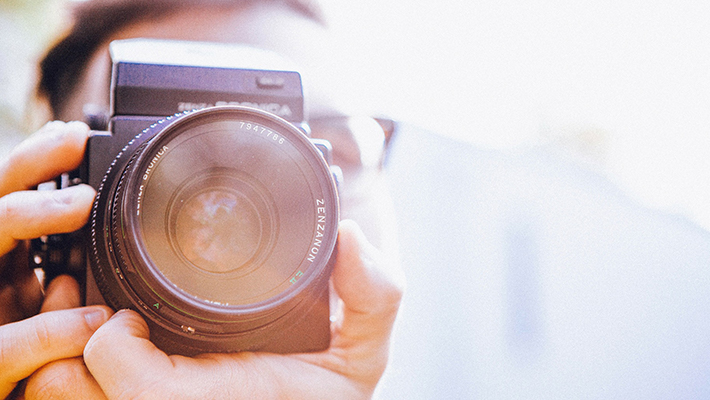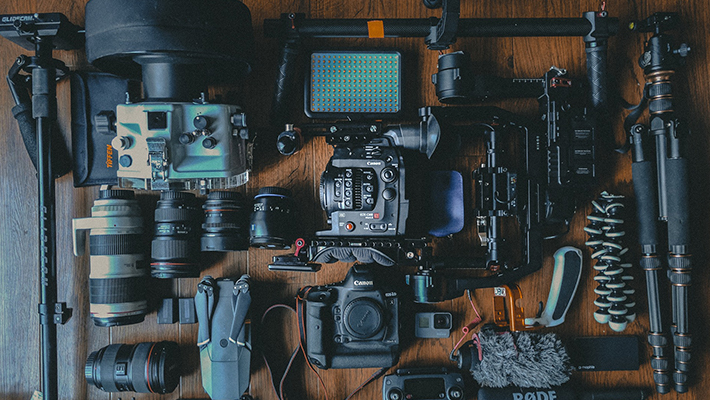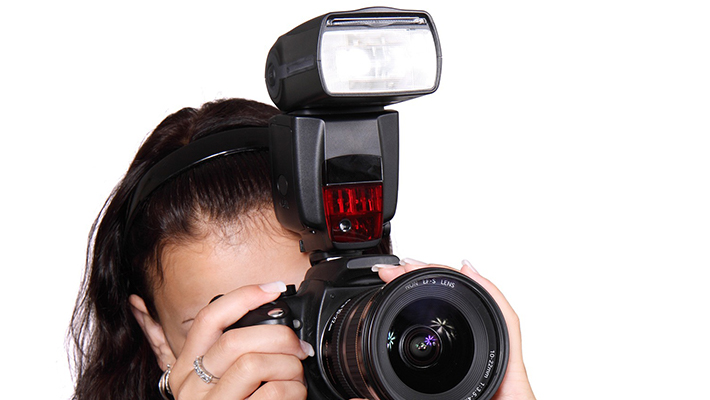Don’t waste money buying the wrong equipment, or time to learn why your photos are poorly focused or overexposed. Knowing exactly what to buy, how to frame, and adjust your camera settings will help you consistently capture spectacular images.

bluecranedigital.com gathered tips and suggestions to help beginner photographers better understand photography and capture stunning images.
1. Know Camera Basics
Before you start randomly taking photos, you should understand how your equipment and its settings work. Familiarizing yourself with the features and mechanics of your camera is fundamental. Knowing how to turn off the automatic flash, adjust the ISO setting, change the shutter speed or aperture, or understanding the zoom function, can make your photos clear, focused, and well-lit.
Note: Refer to your camera’s manual when understanding and experimenting with its settings.
2. Know Basic Photography Equipment

Familiarizing yourself with common camera equipment will help you keep things clean and in order, used when necessary, and properly stored when not in use.
External Hard Drive: Reliably storing your photos is an essential and good habit. Don’t let an accident or malfunction cause the loss of your work before taking action.
Memory Cards: Always carry two in your camera bag. This helps you when a photoshoot runs longer than expected, or you’ve exceeded the expected number of pictures.
Lenses (and lens covers): Lenses are manufactured in all “shapes and sizes” and are one of the most long-term investments a photographer will make. Lenses typically last longer than the cameras themselves.
Tripod: Tripods come in many sizes and need to be sturdy, reliable, and light. This is an essential investment for photographers with shaky hands or limited mobility.
External Light: External lights help smooth or erase harsh shadows on or around your subject. These lights are another crucial long-term investment.
Bag/Carrying Case: Your bag or carrying case should be light enough to be carried without getting in the way or weighing you down while traveling to and from locations.
Camera and Lens Cleaning Supplies: Dirty cameras and lenses can significantly decrease photo quality. Over time, dirt will damage your lenses and camera function.
Rechargeable Batteries: Having extra rechargeable batteries means you can keep a remote photo shoot going on for much longer.
3. Participate in Photography Classes
One of the best ways to learn or improve on your photography skills and get practice is to take photography classes. These classes can range in subject, duration, and price (many are free), and some can be taken online. Types of photography classes and locations to find them may include:
- Online Courses
- Community College Courses
- Private Courses
- Community or Civic Center Courses
- Photography Club Programs
Note: As new technologies or photography methods come to market, courses to properly use them are typically soon to follow.
4. Change Your Location
Don’t fall into the trap of setting up your equipment and not moving throughout the photoshoot. Instead, move around your location (or move your tripod) as much as possible. Climb up onto objects, change the height of your camera, walk forward and backward, do whatever is necessary to keep moving in pursuit of the perfect angle for the perfect image.
Moving in, out, up, down, and around is the only way to practically change the relative sizes and positions of objects in your photo.
5. Use Your Flash

Contrary to popular belief, flashes aren’t just for nighttime or dark environments. If you need extra light, use an external flash and aim it at the ceiling or a wall to add light to your subjects without casting hard shadows. You can discreetly fill in shadows on your subject by using a gentle flash in outdoor settings.
6. Shoot a Lot and Experiment
Practice makes perfect. It’s a tip that will drive you to improve in any skill, not just photography.
Cameras can be complicated and so automated that they leave little room for individual expression. After some practice, turn off your camera’s automated features and dive into the creativeness of photography.
The more you experiment, the better your photos will be. It’s not just about quality; it’s also about quantity. Over time, you’ll find that later trips and sessions will have significantly more “winners” than shots from earlier in your career. There is no getting around that the more time you spend on photography, the easier and more natural it will become to create and capture the photos you have in mind.
Photography Tips
In this article, you discovered essential tips, recommendations, and guidance to help you take incredible pictures and capture the essence of your subject.
Constantly seeking to learn new techniques and perfect the ones you possess will help you excel in your profession as a photographer.
Ignoring basics and tips to shortcut your photography education will only prolong your process and cost you unnecessarily.
Sources:
web.gs.emory.edu/mdp/fieldexperience/photocontest/phototips.html
artinstitutes.edu/about/blog/5-essential-photography-tips-and-tricks-for-beginners
